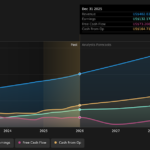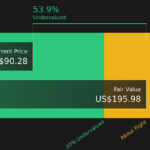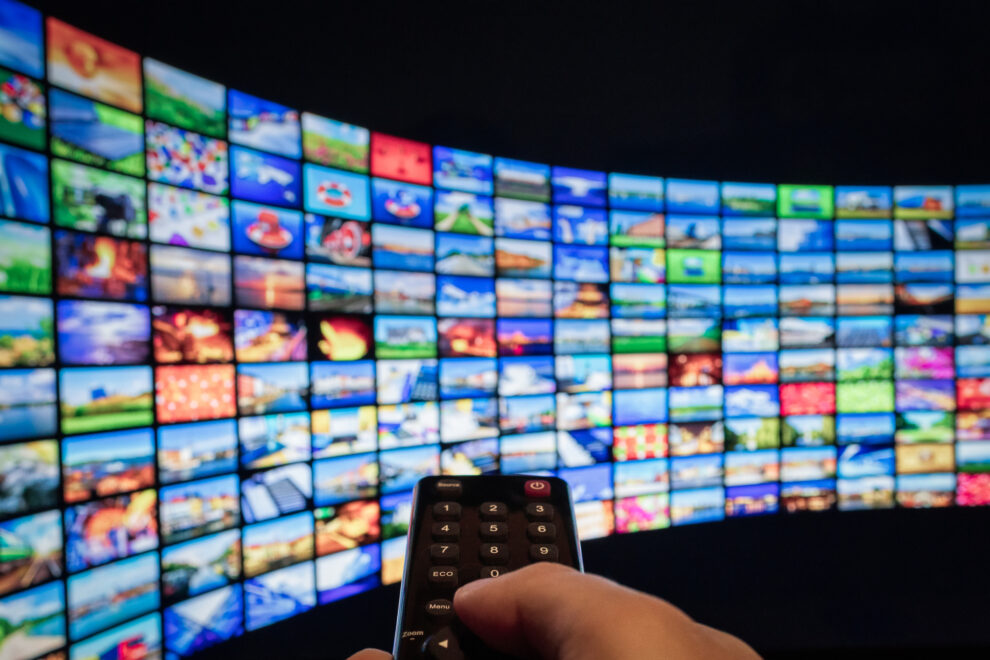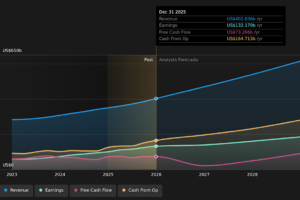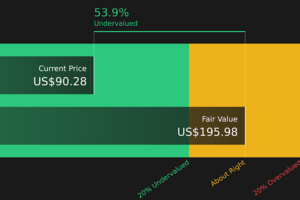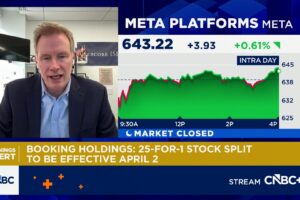
Can Netflix ace live sports coverage? Here’s what you need to know about the lessons learned in last Friday’s flawed attempt.
Media-streaming pioneer Netflix (NFLX -1.59%) tried its hand at live sports coverage last Friday. The company learned some hard lessons from an event pitting boxing legend Mike Tyson against YouTuber and rising ring warrior Jake Paul. After a night plagued by video buffering and the occasional outage, this event raised questions about Netflix’s upcoming live sports coverage.
When Netflix met live sports streaming
Streaming high-definition and 4K video on a massive scale turns out to be difficult.
You can tell when this live event took place by looking at networking problem monitors such as Downdetector.com. Thousands of Netflix viewers ran into slow connections; pixelated, low-quality video; or “try again later” errors during the warm-up fights. Bigger names hit the ring around 10 p.m. ET, and Netflix wasn’t ready for the resulting influx of both casual and lifelong boxing fans.
I know nothing about boxing, but I was trying to watch for research purposes. I mean, maybe there would be something to write about. Using advanced network tools, I tried my luck with Netflix services around the world. The connection trouble persisted almost everywhere, including in Western Europe, where the prize fights were scheduled in the middle of the night.
Anecdotally speaking, the situation improved as the main event drew closer. My Roku TV saw fewer disconnections and “buffering” messages after the initial spike. Not zero, mind you, but fewer — Netflix’s network engineers were clearly doing something helpful behind the scenes. And the Tyson versus Paul battle itself was quite watchable from a video performance point of view. Again, I can’t say much about the boxing action.
Can Netflix handle these events?
At first blush, this wasn’t a great viewing experience. Is Netflix really ready to enter the world of live sports coverage?
The company started promoting this Tyson fight eight months ago. Originally scheduled for July, the bout was moved back to November for medical reasons, and Netflix used that extra time to boost the marketing message. The event involved a true titan of boxing facing off against a master of media exposure who also happens to have a pretty serious boxing career these days. Ten wins (including seven knockouts) and one loss before the Tyson fight looks good to me, though I can’t judge the quality of his opposition.
Would the fresh challenger take down a boxing colossus more than twice his age, or was he due for an Iron Mike knockout? Tune in around midnight to find out!
So, it wasn’t surprising that a large crowd would be amassed at the digital gates to this fight. Yet, Netflix underestimated the demands this inrush would place on its streaming services.
And the company has big plans in this field. Netflix recently signed a multiyear deal with TKO Holdings Group to live-stream its WWE Raw wrestling events. Another deal, this one with the National Football League (NFL), puts several of the NFL’s Christmas Day games on Netflix for the next three years.
These are big events. WWE Raw routinely draws a couple of million weekly viewers to the current coverage on Comcast‘s USA Network. And the Chiefs versus Raiders matchup last Christmas drew a record-breaking 29 million viewers to Paramount Global‘s CBS network.
Is Netflix really ready to handle these massive sporting events?
Lessons learned from streaming hiccups
On the upside, Netflix’s networking issues subsided as the night went on. The Netflix Open Connect content delivery system must have been tweaked on the fly, perhaps calling in some assistance from data center and internet service provider partners for this specific content stream. As noted, this wasn’t good enough to completely erase the ongoing issues, but the viewing experience did improve.
A complete blackout just before the Tyson fight would have been a public relations disaster, and Netflix avoided that grim fate. Still, lots of people complained about the buffering and outages in social media channels, and I saw more coverage of the network performance than the actual fights in the next morning’s headlines.
So, Netflix must do better next time. The upcoming NFL games need to be a convincing showcase of excellent viewing fun — not a frustrating exercise in technical troubles. That streaming event will require fortified content delivery services in advance. Netflix can’t afford to patch up an underpowered system with duct tape and bubble gum on the fly.
Investor insights about Netflix’s live coverage plans
Netflix just saw how hard it is to deliver high-quality live streaming to a tremendous audience. The company has dabbled in live content before but never on this scale, and it was an eye-opener.
I expect the company to upgrade its Open Connect content delivery platform, which is found in data centers and network connection hubs around the world. This effort may show up on future financial statements in the form of larger capital expenses and operating costs. Network engineers don’t work for free, and media server hardware upgrades can be costly.
On the upside, the company is investing in a broader media strategy here. The king of streaming films and serial TV shows also wants to play in the live sports market. That could be a game-changing idea that reignites Netflix’s slowing subscriber growth, but only if the technical issues seen in last Friday’s fights can be solved.
So, I can’t wait for the Chiefs-Steelers and Texans-Ravens matchups in December. Whatever happens on the field, I’m bringing popcorn and a plate of mashed potatoes to see how Netflix handles the video streaming.
This means something. This is important.
Suzanne Frey, an executive at Alphabet, is a member of The Motley Fool’s board of directors. Anders Bylund has positions in Alphabet, Netflix, and Roku. The Motley Fool has positions in and recommends Alphabet, Netflix, and Roku. The Motley Fool recommends Comcast and TKO Group Holdings. The Motley Fool has a disclosure policy.

